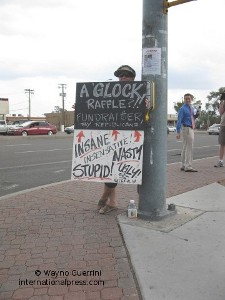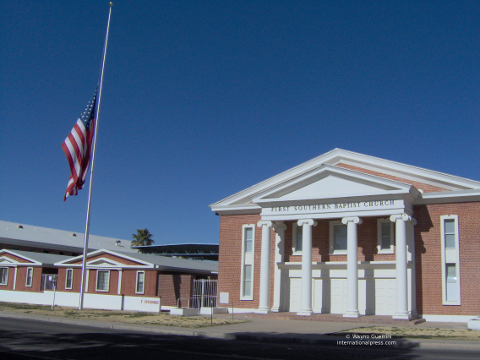TO: CLASSROOM TEACHERS
SUBJECT: The Real Me – A Composite Picture
FROM: The Dyslexic Student in your Class (assisted by Jo Polk, Language Science Teacher)
I just wanted to write you a note to say thanks for all the time and trouble you put in working with me at school every day. Also, there are a lot of things I would like for your to know about me, but trying to put my thoughts down on paper is the hardest thing I do, so my Language Science teacher said she would help me try to tell you what I’m really like.
I know you are interested in what I’m really like because you had me fill out that questionnaire about what I liked best. Well, I told you the food I liked best was hot dogs, but I hate hot dogs! What I really like is spaghetti, but I couldn’t spell that. I also told you my favorite subject is math, but I had to put that down, because I couldn’t spell “science.” So I never can say what I really mean when I’m writing because I can’t spell what I want to say. My teacher says that some studies show that there is a relation between violence and an inability to say what you want to say, either because of a poor vocabulary or because the words are just “tied up” inside of you and won’t come out no matter how hard you try. Sometimes I do just feel like I’m going to explode!
I know that I must be a puzzle in class sometimes because, even though I look like the other kids and act like them, most of the time, I just can’t seem to do my work as well as they do. Maybe you just think I’m kind of weird and that’s why I wanted to try to tell you what it feels like to be me.
This is kind of what it feels like: Do you remember what it felt like when you had that earache and had to have drops and a piece of cotton in your ear? Or when you had your eyes dilated and words looked blurred, and you couldn’t read very well? Or when you had a broken finger or arm and had to do everything with the “wrong” hand? Or how frustrated you feel when you can’t bring up the word you want? Or you can’t remember someone’s name? Or you drink too much of what you want? Or you drink too much coffee and have a case of coffee nerves, and you feel all jittery and uncomfortable inside – and no one else really knows it?
Then suppose you’re struggling with all these things – and the principal walks in to appraise you – and stays six hours! (A whole school day!) (Mom said I should put that in to help you see how I feel, because she said even a TEACHER gets blurry eyed and jittery when she’s getting appraised – whatever that is!) If you can imagine all these things then maybe you feel something of the way I feel at the end of a school day. So sometimes I go home and blow up at Mom and Dad – and they ground me!
I can do some things pretty well though. For instance, I’m a fairly good math student, but words are almost meaningless to me. (That’s what dyslexia is, you know – “bad words.”) So when you give me vocabulary terms to learn in math – they might as well be Japanese! Same way with computer terms or word problems. You see a lot of times I can solve math problems in my head, but when I have to write them down, I make a lot of mistakes – especially if they involve subtraction or multiplication facts.
And I know you must wonder why I almost never get everything copied down from the board. Well, I’m what the doctor calls dysgraphic, which means that my hand just won’t always do what my brain tells it to, so my writing is cramped and out of line and has poor spacing. Besides that, I’m left handed, and I just never did learn to hold my pencil correctly.
Because it’s so hard for me to copy from the board I very
often don’t get home with a complete vocabulary list or notes to study, so I make a bad grade on my test because I didn’t have all the information to study.
Of course copying from the board is usually not as hard as copying form a transparency. Besides the fact that the lights bother me, the letters sometimes blur and seem to move, so by the time I relocate a word that I was working on, the transparency has been moved, and I’m completely lost. That’s usually when I kick Bobby to make him mess up too. And if you’re talking while I’m trying to copy – forget it! I don’t get the notes copied and I also miss what you’re saying!
Just think how confusing it is to try to work with these handicaps in a room with twenty-five or thirty other people moving about and making noise. I also have to try to resist what my teacher calls the “visual static” of highly coloured bulletin boards maps, pictures, charts, posters, etc. I like these – they’re pretty! But the “gatekeeper” in my brain lets in too much of this stimulation and it boggles my mind.
My teacher says all of this stuff makes me have an “output deficiency.” She says that means something is different about the integration process – that after sensory information is received by my brain, something different happens in the neuronal, electrical and/or chemical processes somewhere in my central nervous system. This different neurological organization often keeps me from responding properly to stimuli. (She’s always talking weird like that! We just try to overlook her.)
But some of these things that are different about me make me really good at things like art and music and drama. And everybody in my house brings me things when they need to be fixed. I’m a great swimmer and golfer. And I’m learning photography as a hobby, and I can usually think of a solution to problems that’s different from what everyone else comes up with – and I fell good about that. I’m inquisitive too, and I want to know how everything works.
But yeah, I know I’m in trouble a lot. You’re probably thinking about the bus conduct report I got last week. But how was I to know when the bus driver said, “Hit the seat!” that she meant for me to sit down. Instead, I whacked the seat with my lunch kit and tore the upholstery and she got mad! Why don’t adults say what they mean?
Another thing about me is, what I’d really like to do is to play sports, but it seems like I’m always doing something wrong in football practice. When the coach calls us into the muddle (seems like that to me!), I try to concentrate but my auditory mis-perception problem gets in the way, and I hear what he says, but I just don’t understand what he means. My dad says too, that I can remember some things like an elephant, but that my short term memory is not so good, so I forget the plays. Then when I get on the field and run right instead of left, well.
But I always have too much homework to play football anyway, so I thought I would try band, and I could practice at night after I got my homework done. Boy, I’ve got my problems there too, though. The director tells me I must look at him and if I do, I lose my place on the music, and all the lines and spaces and notes run together and I’m just lost. And the rhythm! I know I couldn’t hear accent in words, but I didn’t know that I would also have trouble with the strong and weak beats in music!
Well it may not matter much, because I don’t want to be a football star of a musician when I grow up, anyway. I want to be a veterinarian – or maybe a surgeon like my mother’s brother. Maybe I can make it, because Mom said my uncle couldn’t have made it through medical school without a reader. I told Mom I couldn’t believe they have basal readers even in medical school.! (Those things will haunt me all my life, I guess!) She said that wasn’t what she meant -just like the bus driver!
Well anyway, my parents say it was the luckiest day of our lives when we moved to this school and I got put in classes with teachers who try to understand and work with me. They said kids like me used to drop out of school – but, then those kids didn’t have teachers like you!
I’ve got to get out of here. It’s 5:30 already and dinner’s at 6:00. Yikes! That’s not 5:30 – it’s 6:25! Oh, no. I’m late again! Mom says I have NO sense of time!
Well thanks again. See you in class tomorrow. I’ll be the one rummaging through my backpack trying to find my pencil and paper. So now for long!
Jo Polk 10/1/87
Copyright (c) Jo Polk – All rights reserved.
Regarding Dysgraphia: (personal note)
My whole learning process is oriented toward hearing, not seeing. It was how I coped with this disability. I never even knew I had it. I just knew, it was hard to learn subjects like math, which is all visual. I had to tape lectures in college and listen to them again. Trying for copious notes just didn’t work. It is probably why my eye/hand co-ordination is so poor, and why I do very poorly at video games. I grew up feeling like I was a clumsy”“klutz” and never knew why. I was never good at sports,never good at art, drawing, or so on. Cursive writing is impossible for me. It’s why I print, and use block letters, to this very day. Stroke by stroke, I form each letter.
I discovered this, when I was doing volunteer work at the Orton Dyslexia Society, in the San Fernando Valley. (They have an excellent chapter in San Diego!) I wanted to better understand some of the other kids I meet, who have learning disabilities, as well as myself.
Dysgraphia, like Dyslexia, is covered under the American’s with Disabilities Act (ADA). If I ever return to school, I will be provided with a note taker, at no cost. Early diagnosis, is important. I went most of my life, thinking that I was ”“different!” I was! But now, I know why. Note that the official diagnosis (for me) was made by a Psychiatrist.
There is solace in numbers. CS Lewis said this: ”“Perhaps the most liberating words ever spoken in any language are these:You too? I thought I was the only one!”
And so it goes –
Wayno Guerrini
September 10, 2000
Addendum
I was diagnosed with Asperger Syndrome, in August, 2008.
This is especially poignant:
Cases of dysgraphia in adults generally occur after some neurological trauma. Dysgraphia may also be diagnosed in a person with Tourette syndrome, ADHD or an autism spectrum disorder such as Asperger syndrome.
This explains a lot of my childhood struggles.





